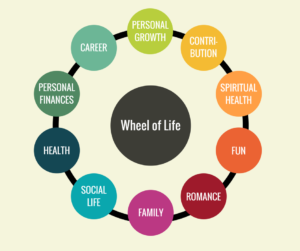The human body operates on a finely tuned internal clock...
Positive Self-Talk, Mindfulness, and Compassion
Negative self-talk, characterized by self-criticism, and harsh internal dialogue, can have detrimental effects on mental health and overall well-being. However, through mindfulness practices and the cultivation of self-compassion, individuals can transform negative self-talk into more constructive and supportive inner dialogue. Drawing from neuroscience and neuropsychiatric research, this article explores evidence-based strategies for overcoming negative self-talk, fostering mindfulness, and building compassion.
Understanding Negative Self-Talk:
Negative self-talk often arises from cognitive distortions, irrational beliefs, and internalized criticism. These though patterns activate brain regions associated with the stress response, including the amygdala and the hypothalamic-pituitary-adrenal (HPA) axis, leading to increased cortisol levels and heightened emotional reactivity. Chronic exposure to negative self-talk can contribute anxiety, depression, and low self-esteem.
Neuroscientific Insights into Mindfulness:
Mindfulness practices, such as meditation and mindfulness awareness, can mitigate the effects of negative self-talk by modulating brain activity and promoting neuroplasticity. Functional magnetic resonance imaging (fMRI) studies have shown that mindfulness interventions reduce activation in the amygdala and enhance connectivity within the prefrontal cortex, leading to improved emotion regulation and decreased rumination. Long-term mindfulness practice is associated with structural changes in brain regions implicated in self-awareness, attention, and empathy, such as the anterior cingulate cortex and the insula.
The Neuroscience of Compassion:
Compassion involves recognizing and alleviating suffering, both in oneself and others. Neuroscientific research has revealed that acts as compassion activate brain areas associated with reward processing and social bonding, including the ventral striatum and the orbitofrontal cortex. Moreover, cultivating compassion through practices like loving-kindness meditation enhances activity in regions involved in empathy and perspective-taking, such as the temporoparietal with increased positive affect, greater emotional resilience, and improved interpersonal relationships.
Strategies for Cultivating Positive Self-Talk, Mindfulness, and Compassion:
- Cognitive Restructuring: challenge negative thoughts and replace them with more realistic and compassionate self-talk. Recognize cognitive distortions, such as black and white thinking or catastrophizing, and reframe them with balanced and affirming statements.
- Mindful Meditation: engage in regular mindfulness meditation practices to cultivate present-moment awareness and non-judgmental acceptance of thoughts and emotions. Focus on the breath, bodily sensations, or loving-kindness towards oneself and others.
- Self-Compassion Exercise: practice self-compassion by treating oneself with kindness, recognizing common humanity, and embracing imperfection. Use self-compassion exercises, such as self-soothing touch or writing compassionate letters to oneself, to nurture a more supportive inner dialogue.
- Compassionate: extend compassion beyond oneself by engaging in acts of kindness towards others. Volunteer, offer support to friends or strangers, and cultivate a sense of interconnectedness and altruism.
Conclusions:
By integrating neuroscience and neuropsychiatric insights into our understanding of negative self-talk, mindfulness, and compassion, individuals can develop effective strategies for promoting mental well-being and emotional resilience. Through regular practice and intentional effort, it is possible to transform negative thought patterns, cultivate mindfulness, and foster compassion towards oneself and other, ultimately leading to a more fulfilling and compassionate way of living.






